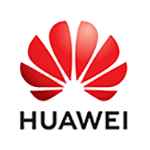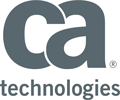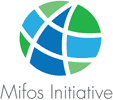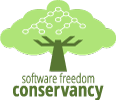Open source and open standards in the age of cloud AI
When the term “open source” first took hold 20 years ago, we lived in an age dominated by personal computers. The internet was shaking things up, but it is easy to forget how peripheral it still was. Amazon was only three years old, and Google was born that year. The architectural assumptions of the PC era suffused the definition of open source; the ability to obtain the source code, modify it, run it on your own machine, and redistribute your changes to others was actually how we got new functionality on our machines. Control over proprietary software was the key to monopoly lock-in.
Today, network effects and data accumulation are the sources of lock-in. The ability to study, modify, and build on source code surely still matters, but much of the software infrastructure we depend on today is so tightly woven with accumulated user data and business processes, and at such scale, that source code access alone doesn’t level the playing field in the way it once did. How are we to extend the values and practices of open source in the age of AI, big data, and cloud computing? Join Tim O’Reilly to find out.

Tim O'Reilly
O'Reilly Media
Tim O’Reilly is the founder and CEO of O’Reilly Media, Inc. His original business plan was simply “interesting work for interesting people,” and that’s worked out pretty well. O’Reilly Media delivers online learning, publishes books, runs conferences, urges companies to create more value than they capture, and tries to change the world by spreading and amplifying the knowledge of innovators. Tim has a history of convening conversations that reshape the computer industry. In 1998, he organized the meeting where the term “open source software” was agreed on and helped the business world understand its importance. In 2004, with the Web 2.0 Summit, he defined how “Web 2.0” represented not only the resurgence of the web after the dot-com bust but a new model for the computer industry based on big data, collective intelligence, and the internet as a platform. In 2009, with his Gov 2.0 Summit, he framed a conversation about the modernization of government technology that has shaped policy and spawned initiatives at the federal, state, and local level and around the world. He has now turned his attention to implications of AI, the on-demand economy, and other technologies that are transforming the nature of work and the future shape of the business world. This is the subject of his book from Harper Business, WTF: What’s the Future and Why It’s Up to Us. In addition to his role at O’Reilly Media, Tim is a partner at early-stage venture firm O’Reilly AlphaTech Ventures (OATV) and serves on the boards of Maker Media (which was spun out from O’Reilly Media in 2012), Code for America, PeerJ, Civis Analytics, and PopVox.
Sponsorship Opportunities
For exhibition and sponsorship opportunities, email oscon@oreilly.com
Partner Opportunities
For information on trade opportunities with O'Reilly conferences, email partners@oreilly.com
Contact Us
View a complete list of OSCON contacts
©2018, O'Reilly Media, Inc. • (800) 889-8969 or (707) 827-7019 • Monday-Friday 7:30am-5pm PT • All trademarks and registered trademarks appearing on oreilly.com are the property of their respective owners. • confreg@oreilly.com




























